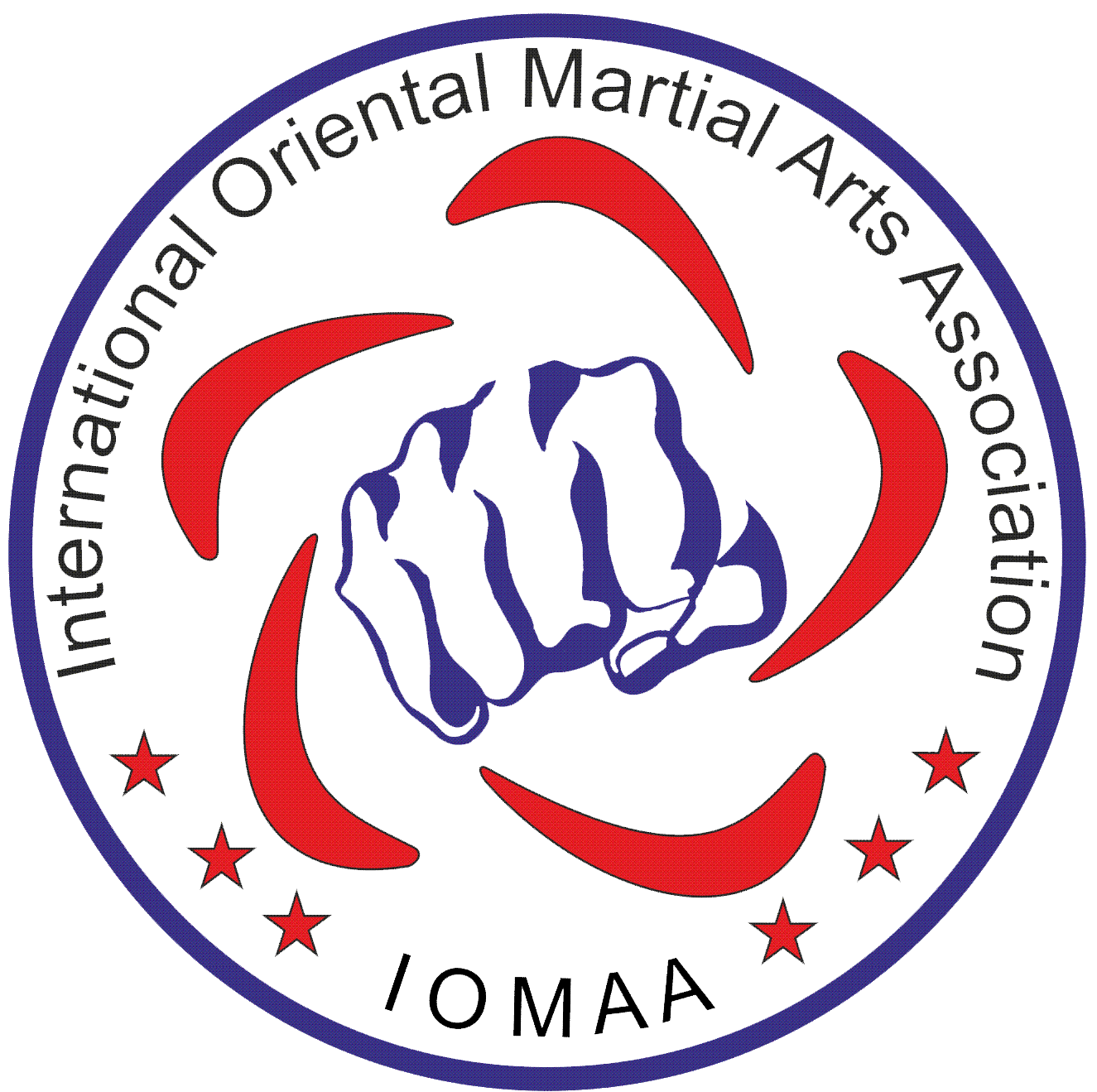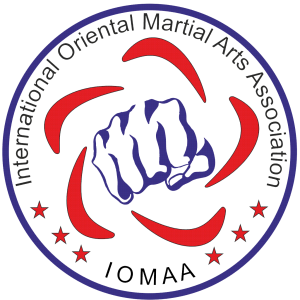Oriental Martial Arts is an amalgamated sport which encompasses three Japanese martial arts: Shotokan, Shito-ryu, Kobudo and one Vietnamese martial art – Viet Vo Dao
In the second half of the 20th century these four South-East Asian fighting arts transformed into popular sports. Today the total number of their practitioners exceeds 24,3 million people World over. By today they have obtained official recognition as sports and established National Federations in over 200 countries. Respective International Sport Federations regularly hold World and Continental adult, junior, cadet and children Championships, Cups and other tournaments.
IOMAA Unified International Competition Rules incorporate the Rules of conducting Shotokan, Shito-ryu, Kobudo and Viet Vo Dao individual and team (group) sport competitions in:
- full-contact bouts (fighting) without traditional oriental weapons in weight divisions, using protective gear (Kobodo, Viet Vo Dao);
- semi-contact bouts (fighting) without traditional oriental weapons, in weight divisions, using protective gear (Viet Vo Dao);
- full-contact bouts (fighting) with a traditional oriental weapon (Nunchaku) in open weight only, using protective gear (Kobudo);
- light-contact (skin touch) bouts (fighting – Shiai Kumite, Ippon-Shobu) without traditional oriental weapons in open weight division only, without using protective gear (Shotokan);
- light-contact (skin touch) bouts (fighting – Shiai Kumite, Sanbon-Shobu) without traditional oriental weapons, in weight divisions, without using protective gear (Shito-Ryu);
- non-standardized non-contact pre-arranged traditional patterns (fighting forms) with opponent, without traditional oriental weapons, without using protective gear (Kobodo, Viet Vo Dao);
- non-standardized non-contact pre-arranged traditional patterns (fighting forms) with opponent, with traditional oriental weapons, without using protective gear (Kobodo, Viet Vo Dao);
- standardized traditional patterns (technical forms) without opponent (Kata) without traditional oriental weapons (Kobodo, Shotokan, Shito-Ryu, Viet Vo Dao);
- standardized traditional patterns (technical forms) without opponent (Kata) with traditional oriental weapons (Kobodo, Shotokan, Shito-Ryu, Viet Vo Dao);
- non-standardized (free-style) patterns (technical forms) without opponent (Kata) without traditional oriental weapons (Viet Vo Dao);
- non-standardized (free-style) patterns (technical forms) without opponent (Kata) with traditional oriental weapons (Kobodo, Viet Vo Dao).
With the purpose to consolidate efforts in promoting these four Oriental Martial Arts as a united sport, on 4th April 2014 the Founding Congress was held in Riga, Latvia. It was attended by delegates from 70 National Oriental Martial Arts federations as well as from Shotokan, Shito-ryu, Kobudo and Viet Vo Dao federations, associations, unions, collectively representing 40 countries of five Continents. The Conference launched a new international non-profit umbrella sports organization – the International Oriental Martial Arts Association (IOMAA).
Alexandrs Dudoladovs from Latvia, Latvian Kobudo Federation President and former Latvian Karate Champion was elected the first IOMAA President. Mr. Ilya Gouliev from Russia, the European JKA (Shotokan) Federation President, the Oriental Martial Arts Federation of Russia (OMAFR) President and the Union of Shotokan Karate-do Organizations of Russia (USKO Russia) President was elected the IOMAA First Vice-President.
On the 30th of December 2014 IOMAA was sealed in Riga by the Registration Chamber of the Republic of Latvia, Reg. Number40008231833, Registration Certificate – B 019858 was issued on 14th January 2015.
The formation of IOMAA is to represent the diversity of Oriental Martial Arts recognized as sports and to further popularize and promote them on both national and international levels to the benefit of all their practitioners worldwide. One of the goals of IOMAA is to achieve recognition from both Sport Accord and IOC and to have Oriental Martial Arts Sport included in the Sport Accord Combat Games, the World Games and, some day perhaps in the Olympic Games.
In order to achieve these goals, IOMAA must have all organizations representing the five distinct Oriental Martial Arts Sports united under one Oriental Martial Arts National Sport Federation in each country, and each country internationally united under IOMAA. Consequently, this requires collaboration, cooperation and efficiency to achieve it within a short time period. To prove the success of this effort IOMAA wants to encourage all its members to get actively involved into this unification process in their respective countries.
On 13th September 2023 the 3rd IOMAA Electoral Congress was held in Cot d’Or, Mauritius. It was attended by delegates from 68 National Oriental Martial Arts federations and Shotokan, Shito-ryu, Kobudo and Viet Vo Dao federations, associations, unions, collectively representing 39 countries of five Continents.
The Congress elected Hideo Ochi from Japan/Germany, 9th Dan JKA, JKA World Federation / Europe Chief Instructor, JKA Germany Chief Instructor and former 4 times JKA Champion the new IOMAA President for the next five-years term.
The Congress re-elected Dr. Ilya Gouliev from Russia, 6th Dan JKA, 7th Dan IOMAA, Oriental Martial Arts Federation of Russia (OMAFR) and Union of Shotokan Karate-do Organizations of Russia (USKO Russia) President, former European JKA (Shotokan) Federation President, former European Shotokan Karate-do Association (ESKA) Vice-President, former World Karate Confederation (WKC) Senior Vice-President the IOMAA First Vice-President – IOMAA Secretary General for the next five-years term.
The Congress moved the IOMAA President’s Office from Riga, Latvia to Bottrop, Germany.
The Congress established the second IOMAA Secretary General’s Office in Moscow, Russia.
The Congress moved the IOMAA European Headquarters from Bottrop, Germany to Limassol, Cyprus.
The Congress moved the IOMAA Asian Headquarters from Tokyo, Japan to Bottrop, Germany.
The Congress elected the new IOMAA Board for the next five-years term.
The following Oriental Martial arts Masters were elected IOMAA Board Members – IOMAA Regional Directors for the next five-years term.
The IOMAA Asian Headquarters was moved to Bottrop, Germany.
The Congress elected the IOMAA President Hideo Ochi, 9th Dan JKA, IOMAA Board Member and the new IOMAA Regional Director for Asia.
The IOMAA European Headquarters was moved to Limassol, Cyprus.
The Congress elected Phifos Mavrovouniotes, 5th Dan JKA, IOMAA Board Member and the new IOMAA Regional Director for Europe.
The IOMAA Eurasian Headquarters is in Moscow, Russia.
The Congress re-elected the IOMAA President – IOMAA Secretary General Dr. Ilya Gouliev, 6th Dan JKA, 7th Dan IOMAA, IOMAA Board Member and the IOMAA Regional Director for Eurasia.
The IOMAA Australian and Oceanian Headquarters is in Melbourne, Australia.
The Congress re-elected Piet Lamberg, 7th Dan, IOMAA Board Member and the IOMAA Regional Director for Australia and Oceania.
The IOMAA African Headquarters is in Midrand, South Africa
The Congress re-elected David Freedman, 8th Dan, IOMAA Board Member and the IOMAA Regional Director for Africa.
The IOMAA Pan-American Headquarters is in Rio-de-Janeiro, Brazil.
The Congress re-elected Yoshitaka Tanaka, 8th Dan, IOMAA Board Member and the IOMAA Regional Director for Pan-America.
LATEST NEWS
Upcoming Events
World Viet Vo Dao Championships (IOMAA / WFVV) – Seniors
30th July – 9th August 2024, Ho Chi Minh, Vietnam
World Shotokan Championships (IOMAA / JKA WF) – Seniors
19th – 30th October 2024, Takasaki, Japan
World Shotokan Junior Championships (IOMAA / JKA WF) – Juniors, Youth
19th – 30th October 2024, Takasaki, Japan
International Shotokan Tournament (IOMAA / JKA WF) – Kids, Veterans
19th – 30th October 2024, Takasaki, Japan

